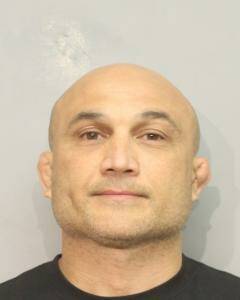By GENARO C. ARMAS
STATE COLLEGE, Pa. — Dave Joyner’s first hire as Penn State acting athletic director has worked out well so far.
Nearly a year after taking over athletics in the fallout from the Jerry Sandusky abuse scandal, Joyner expressed optimism about the direction of athletics and the football program saddled with strict NCAA sanctions.
“I would give him an A-plus,” Joyner said this week when asked to grade first-year coach Bill O’Brien’s performance. “In this environment, and with what he and his players have had to face, I give them all an A-plus.”
Joyner spoke to The Associated Press during a break at a campus conference on child sex abuse impact and prevention. Sandusky’s arrest last Nov. 5 sparked the scandal that plunged the school into turmoil and cost Hall of Fame coach Joe Paterno his job.
In any other season, a 5-3 record entering November would cause panic among the Nittany Lions fan base. Penn State plays at Purdue this weekend.
Of course, this is no normal year.
“We’ve had some very positive things happen on and off the field, relative to the football program. I also think the university as a whole is regrouping and moving forward,” Joyner said. “But you’re always reverent … I think this conference today is an example of the university moving forward, with reverence and respect for a lot of issues that go on outside athletics.”
The NCAA sanctions for the scandal included a four-year postseason ban, significant scholarship cuts and a $60 million fine to be paid over five years.
Some fans wondered whether other sports would suffer because of the scandal. The NCAA agreement mandates that not be the case, and Joyner said Penn State remained committed to keeping all its sports.
On the field, other athletic teams beside football are enjoying success this fall. At one point, all five fall teams were in sole possession or tied for first in their respective sports. In the classroom, NCAA data released recently showed Penn State athletes with a Graduation Success Rate of 88 percent, 8 points higher than the Division I average.
“My message to fans is that Penn State athletics is here to stay and here to deliver the product with integrity, academics and championships the way they’ve been used to,” Joyner said. “We intend to continue with that great tradition.”
Joyner has encountered challenges in his first year on the job that no other athletic director has faced.
He was on the Board of Trustees that ousted Paterno last November, days after Sandusky’s arrest. Athletic director Tim Curley went on leave after being charged with perjury and failing to report an abuse allegation, counts on which Curley is scheduled to stand trial in January.
University leaders turned to Joyner, a physician, standout college wrestler and former offensive tackle under Paterno, in mid-November. President Rodney Erickson, who also assumed office a year ago, cited Joyner’s integrity and resume of service, including his work as the head physician to U.S. teams at the 1992 Winter Olympics, and chairman of the sports medicine committee and vice chair of the anti-doping committee.
But Joyner never had to make such an important hire such as finding Paterno’s replacement, especially under such intense scrutiny.
Initially, some former players and fans were skeptical when O’Brien, the former offensive coordinator of the New England Patriots, was hired in January. O’Brien quickly won them over with a no-nonsense but open attitude that also embraced the school’s football tradition.
A 35-23 loss to Ohio State last week ended a five-game winning streak that had the Nittany Lions surprisingly in the hunt for the Leaders Division title. Still, after losing about 10 players following the NCAA sanctions, the team is in better shape than many college football observers had expected.
“If you look at the on-field accomplishments, being 5-3 at this point is a very, very solid performance,” Joyner said. “They play with a lot of guts and enthusiasm, and I think the fans embrace it.”
While the Ohio State game was a sellout of more than 107,000, average attendance is down. Athletic department officials have instituted changes in season ticket guidelines to boost attendance, two years after introducing new guidelines that left some fans unhappy.
Officials acknowledge the scandal may also play a part in attendance, though they say it’s hard to quantify. Joyner said he’s also optimistic about donations.
Projected revenue this year from the Nittany Lion Club donations have been estimated to reach $17.5 million, a record but up slightly — about $100,000, from the previous year.
Where Penn State could get a boost starting next year is hockey. The school upgraded its men’s and women’s programs from club status to Division I, and a new hockey arena is also under construction.
It’s the result of a record $108 million donation from energy company executive Terry Pegula, who also owns the NHL’s Buffalo Sabres.
“It fits in really well. If you’re filling that stadium, that hockey arena, then you’re having a positive impact on revenue,” Joyner said.
Judging from the fan reaction so far, hockey could be a new, important revenue stream especially when the men’s program joins the Big Ten for its inaugural hockey season next year.





